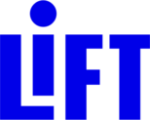To me, service is putting myself at the disposal of another. When I serve, I allow another person to use the gifts and abilities that I have, few of which I have earned. If a Member needs my knowledge to find them shelter, my computer skills to create their resume, my privilege to advocate for them with the welfare system, my ear and my heart to hear their story, then that is what I am there for. Though I am very present in the interaction, I am merely the tool, sharing what I have not earned with someone who is not as privileged as I.
I started with LIFT as an Advocate and returned for a year of service as a Fellow because LIFT exemplifies service led by the served. As an Advocate, LIFT helped me take my own biases and ideas out of the Member Service process by teaching me unconditional positive regard and the Member-led meeting format. Now, working on the National Program Team, I get to see the bigger picture of how LIFT is completely Member-led: through data.
For LIFT and LIFT Advocates to truly be a tool for Members to use to lift themselves out of poverty, we must take our ideas and desires out of the equation. Our aim is to help our Members the best we can without imposing our own views on them. By basing our program on Member feedback and achievement, LIFT is putting Members at our center.
We can believe that the connections, cash, and confidence that we help our Member access are what help them lift themselves out of poverty, but is it? For that matter, are the “three Cs” really the key to escape the cycle of poverty? Through triangulating CV and Link data on these three factors, we are testing the hypotheses that LIFT is based on.
Sometimes, the answers will hurt. One small example: our early findings from CV and Link showed that Members who felt that they were better connected to their community were more likely to achieve their Goals, and Members did not feel that LIFT was connecting them to their community. Ouch. But this is the final key to using data: we change things based on what we find. When we found this, we improved our referral process to more effectively connect our Members to their community and community resources.
If LIFT continues to be open to these learning experiences, we will reach our goal of helping Members lift themselves out of poverty. Not only that, but with our data collection process, when we find that special combination of cash, confidence, connections, courtesy, dignity, and respect that help people lift themselves out of poverty, we can not only prove it, but show other organizations how to replicate it. Imagine the revolution in this country if we could prove, with solid, unbiased data that looking someone in the eye, caring about what they have to say, and believing that they can attain the life they want gives people the boost that they need to reach their goals? It would be like finding pixie dust.
Data is how we center our program on Members and how we show the world that our Members’ progress and ideas matter. I am proud to put myself at the service of our Members to work toward a better program and solution to poverty.
The Shriver Corps is a once-in-a-generation cohort of AmeriCorps*VISTA volunteers committed to helping people across the United States lift themselves out of poverty for good. The program is a collaboration between LIFT, Maria Shriver’s A Woman’s Nation, and AmeriCorps, and was created to honor the legacy of Sargent Shriver, the founder of the landmark VISTA program.
